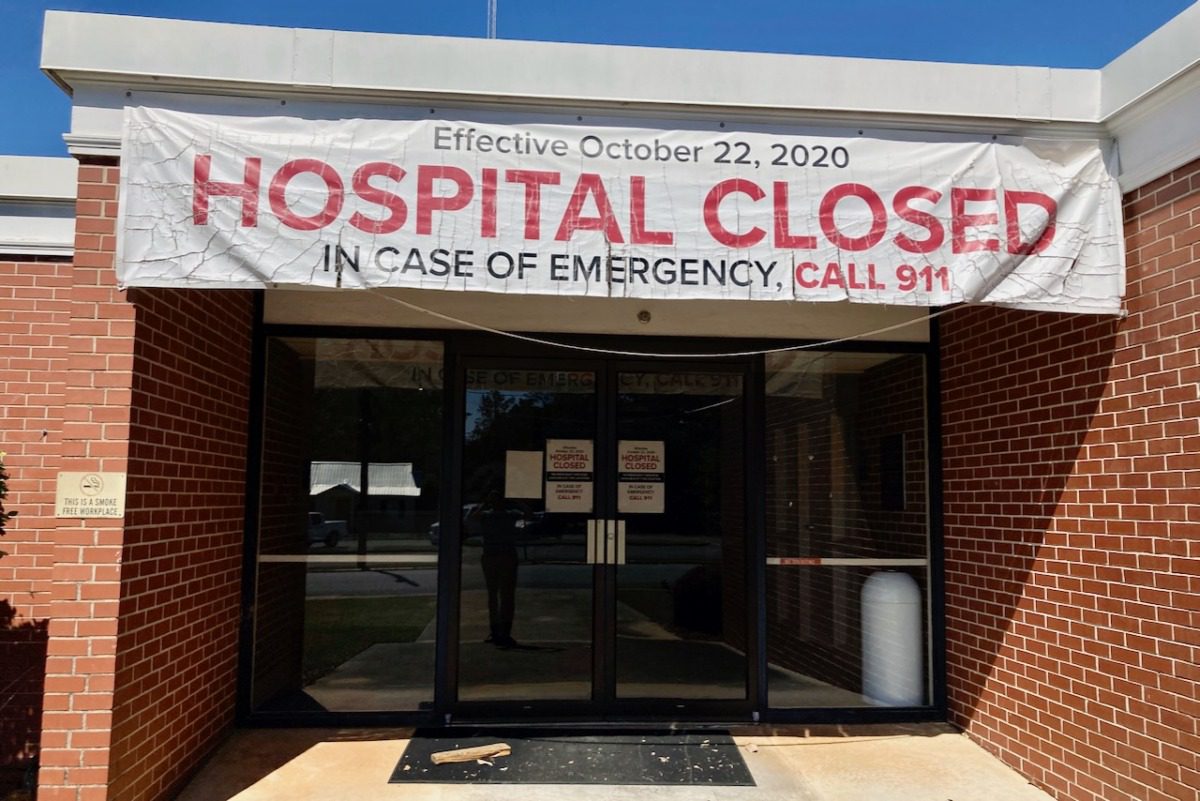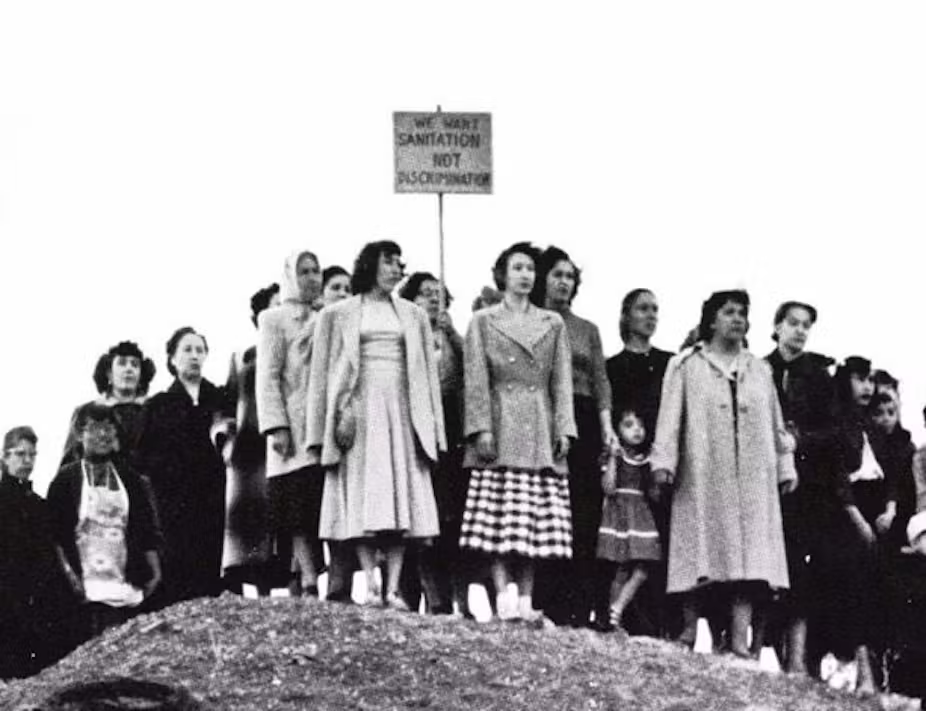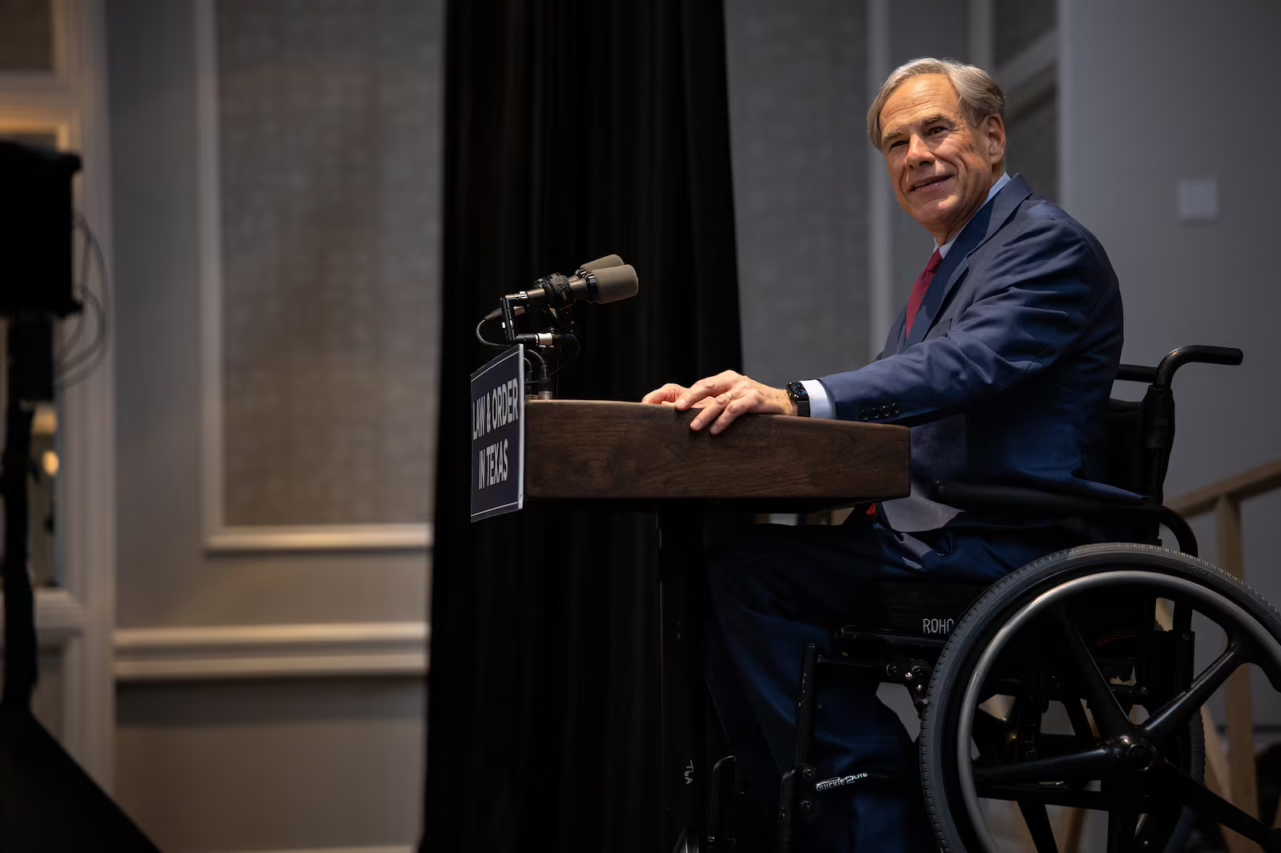
Rural hospitals in Texas, many of which are struggling to stay open, face funding cuts and other changes that negatively impact them under a Republican spending bill being considered in Congress. (Photo by Associated Press)
Drastic cuts would hurt rural Texans—whether they’re on Medicaid or not.
When the East Texas Medical Center hospital system decided in 2017 not to renew the lease on its facility in Trinity County, its sheriff expressed confidence that a new provider would take over before services lapsed.
Instead, it took five years to find a new tenant to shoulder the risk of re-opening the county’s only hospital and then just over a year for Mid Coast Medical Center, the new hospital system, to throw in the towel.
Now, residents of Trinity County, a community north of Houston, have to drive at least 30 miles to visit an emergency room or deliver a child. It’s a dire situation for the county’s more than 13,000 people, half of whom live below the poverty line. But it’s not an unusual one in the state: 21 rural hospitals in Texas have permanently shut their doors since 2010, the most in the nation.
In November, analysis by the Center for Healthcare Quality and Payment Reform found that there were 87 rural Texas hospitals at risk of closing, including 22 that could be forced to shut down within the next three years. Advocates fear that the huge cuts to healthcare spending proposed in congressional Republicans’ budget bill will only expedite the closures.
“Lawmakers are not representing their constituents, they’re representing their party and the wealthy people who really make decisions for their party,” says Lynne Cowles, the director of health and food justice at the nonprofit Every Texan. “People will have to drive hours to get emergency care, to get surgery, or to undergo labor and delivery. Lives are on the line in those longer drives. Whole communities will suffer the loss of rural hospitals.”
Republicans’ proposed budget bill—the “One Big Beautiful Bill,” as they’ve dubbed it—contains hundreds of billions of dollars in cuts to Medicaid, as well as changes to the way the federal government supports and compensates healthcare providers. Both would be devastating for working people in Texas, with rural communities hit disproportionately hard. With the biannual state legislative session now adjourned, there is little reason to believe that any measures to mitigate the damage would be forthcoming at the state level, either.
Millions will lose insurance
As it stands, Republicans’ budget bill would implement so-called “work requirements” on enrollees in the expanded Medicaid program, which is open to people who earn up to 138% of the federal poverty rate. Because Texas is among the 10 states that have not expanded Medicaid, securing it the dubious honor of having the highest uninsured rate in the nation, the state won’t have quite as many people kicked out of the program—a pyrrhic victory to say the least.
Still, there are other new bureaucratic impositions on Medicaid recipients that will directly impact Texans. Whereas the state is currently required to verify recipients’ ongoing eligibility once a year, the budget bill would bump that up to twice a year, further empowering a state Medicaid agency that aggressively and inappropriately unenrolled millions of people after the Covid-19 pandemic.
Since then, the federal government has issued rules that streamlined the eligibility check process for many of Medicaid’s most vulnerable enrollees, but the GOP bill would push them back by a full decade, putting eligible people at further risk of losing their state insurance or at risk of never obtaining it in the first place.
According to Cowles, reducing retroactive eligibility—or the ability to sign up for Medicaid and have bills covered after receiving care—from three months to one after first receiving care could prove devastating for both individuals and health providers.
“There are people who don’t know about retroactive eligibility and if they’re in the middle of a health crisis, or their child is in a health crisis, they might not know to sign up for Medicaid right away,” Cowles says. “And then all of sudden you’re 60 days out and been in the hospital for that long, getting stacked with medical bills, and all of a sudden could be $500,000 in debt.”
Add in the GOP’s decision to not renew tax credits to purchase insurance on the Affordable Care Act marketplace, and the nonpartisan health care policy nonprofit KFF estimates that around two million Texans would lose their health insurance by 2034. Fewer patients with insurance means far more uncompensated care, which is particularly harmful to rural hospitals, which disproportionately serve people on the federal health program.
Rural hospitals on the brink
Rural hospitals are particularly reliant on Medicaid, and over the past few decades, declining reimbursement rates compared to private insurance have helped push many toward operating in the red. But Medicaid compensation is far better than nothing, so rural hospitals in Texas, which serve poorer, sicker, and older communities, have suffered more than counterparts elsewhere due to the state’s refusal to expand the program.
If the Senate’s version of the budget bill prevails, limits to local Medicaid funding initiatives will have an even bigger impact than so-called work requirements.
Every state but Alaska uses a version of what’s known as a provider tax to secure more federal funding for low-income patients. Hospitals and other healthcare providers pay a small tax to a local government, which states use to fund their Medicaid obligation. Critically, the federal government provides a match in the revenue generated to each state. That money is used to increase Medicaid payments.
As the Georgetown University McCourt School of Public Policy notes, restrictions on these taxes would thus severely hurt rural hospitals, which rely on continued adjustments to the funding.
In Texas, only rural hospital systems participate in the provider tax. According to John Henderson of the Texas Organization of Rural & Community Hospitals, the money that comes back to them generally accounts for between 10% to 15% of their operating expenses.
The House GOP proposed capping the tax rates where they are right now, which would cost Texas $4 billion over 10 years, Henderson says.
Lifetime caps on compensation for children and other non-disabled recipients would further starve rural hospitals, which would be stuck with the bill.
Without enough income, rural hospitals are forced to cut services, including OB/GYN services, child delivery, and routine care. In many cases, they become shells of their former selves, offering bare bones emergency care and little else.
“OB is the first to go,” Henderson says. ”It’s the canary in the coal mine.”
The numbers are stark: Not a single one of the rural hospitals shuttered since 2010 were delivering babies when they closed their doors, and only 62 of 157 rural hospitals currently open in Texas still provide maternal care.
“It’s not just people on Medicaid who are going to suffer,” Cowles says. “The people who have employer insurance will, too. When the hospital closes, the hospital closes—it doesn’t matter whether you have employer insurance or not.”












